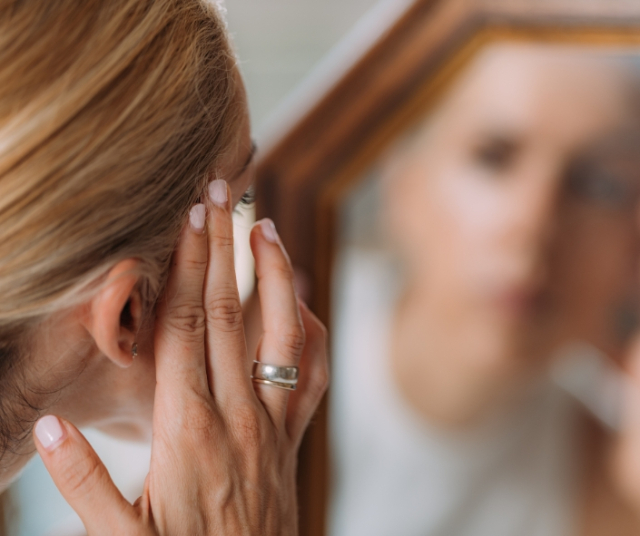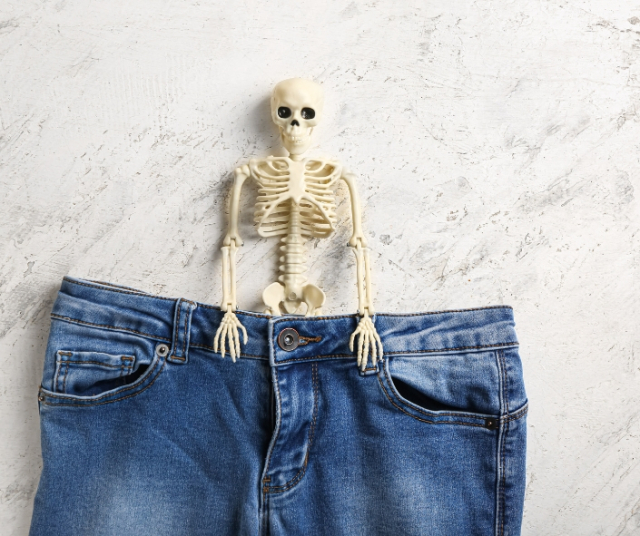The relationship between the mind and the body is complex, and some psychological illnesses can significantly influence the perception of body image. In this article, we will delve into the fascinating world of psychological illnesses that alter the way people see themselves, whether perceiving themselves as fatter than they really are or vice versa. We will explore disorders such as anorexia nervosa, bulimia, body dysmorphia and others, examining their causes, symptoms and how they affect mental and physical health.
The Thin Line between Reality and Perception.
The Importance of Body Image.
Body image plays a fundamental role in a person's mental and emotional health. However, some psychological illnesses can distort this perception, leading to obsessive concerns about weight and physical appearance.
Eating Disorders and Body Image.
Eating disorders are often linked to distorted perception of the body. Anorexia nervosa, bulimia, and other similar disorders can cause people to view their bodies in unrealistic ways, which has significant consequences for their physical and mental health.
Anorexia Nervosa: When "Too Thin" is Never Enough.

Anorexia nervosa is an eating disorder characterized by extreme restriction of food intake and an obsessive preoccupation with losing weight. People with anorexia often have a distorted body image and fear gaining weight, even if they are below a healthy weight.
Causes and Risk Factors.
Anorexia nervosa may have multifactorial roots, including genetic, environmental, and psychological factors. Social pressure to meet unrealistic beauty standards and traumatic experiences can contribute to the development of this disorder.
Impact on Body Perception.
People with anorexia often see their bodies as larger than they really are. This distortion can lead to extreme behaviors, such as severe dietary restriction and overvaluing thinness as a measure of self-esteem.
Consequences for Physical and Mental Health.
In addition to the physical risks associated with a lack of nutrients, anorexia nervosa can also have serious mental health consequences, such as depression, anxiety, and extremely low self-esteem.
Bulimia: Between Binge Eating and Loss of Control.

Bulimia is an eating disorder characterized by recurrent episodes of excessive food intake followed by compensatory behaviors, such as self-induced vomiting or excessive laxative use. Although people with bulimia can maintain a seemingly normal weight, their body perception is affected by episodes of binge eating and purging.
Underlying and Triggering Factors.
Bulimia is often related to self-esteem issues, social pressures, and intense emotions. Dissatisfaction with body image and the desire to control weight can trigger this disorder.
Body Image and the Wheel of Binge Eating and Purification.
The perception of body image in bulimia is affected by the constant cycle of binge eating and purification. After episodes of overeating, people with bulimia may experience an intense aversion to their bodies, which fuels the destructive cycle.
Health Complications.
In addition to mental health risks, bulimia can lead to physical complications such as gastrointestinal problems, electrolyte imbalances, and dental damage due to frequent vomiting.
Vigorexia: The Obsessive Search for Perfect Musculature
Contrary to anorexia, vigorexia is characterized by a pathological obsession with muscle development and the perception of muscle insufficiency. People with vigorexia may spend long hours in the gym, follow rigorous diets, and abuse supplements to achieve a muscular physique.
Development Factors.
Vigorexia is often related to social pressure to achieve beauty standards that idealize muscularity. Factors such as low self-esteem, dissatisfaction with body image, and exposure to unrealistic models of beauty can contribute to the development of this disorder.
Distorted Body Perception.
Although people with vigorexia may have significant muscle development, their body perception is distorted. They may perceive themselves as thin or insufficiently muscular, which fuels their obsessive pursuit of physical perfection.
Physical Health Risks.
Vigorexia carries physical risks, such as muscle injuries, heart problems, hormonal imbalances, and dependence on performance-enhancing substances. The relentless pursuit of perfect muscle can have a devastating impact on overall health.
Body Dysmorphic Disorder (BDD): When the Image Becomes an Obsession.

Body dysmorphic disorder is a mental illness characterized by an obsessive preoccupation with perceived flaws in physical appearance. Although it is not exclusively an eating disorder, it can be related to concerns about weight and body shape.
Causes and Triggers.
Causes of BDD can include genetic factors, imbalanced brain chemicals, and traumatic experiences. Cultural pressure to meet unrealistic beauty standards may also play a role in the development of this disorder.
Impact on Body Perception.
People with BDD may perceive flaws that are not obvious to others, leading to a constant obsession with physical appearance. This disorder can affect any part of the body, including shape and size.
Consequences for Daily Life.
BDD can have significant consequences for daily life, affecting self-esteem, interpersonal relationships, and overall quality of life. People with this disorder often avoid social situations and may seek unnecessary cosmetic procedures to correct their distorted perceptions.
Other Disorders Related to Body Perception.
Orthorexia: Obsession with Healthy Food.
Orthorexia is a disorder characterized by an unhealthy obsession with eating foods considered healthy. Although not exclusively focused on body image, orthorexia can be linked to an extreme concern about physical fitness and appearance.
Pica: Consumption of Non-Food Substances.
Pica is an eating disorder in which people consume non-food substances, such as hair, dirt, or paper. Although not directly related to body perception, pica can have serious consequences for physical health.
The Role of Therapy and Support in Treatment.
Cognitive-Behavioral Therapy (CBT).
Cognitive-behavioral therapy has been shown to be effective in the treatment of disorders related to body perception. Helps people identify and change negative thought patterns and dysfunctional behaviors.
Family and Group Therapy.
Inclusion of family and participation in support groups can be crucial components of treatment. Understanding and support from loved ones and people who share similar experiences can be critical to recovery.
In a world where social pressure and unrealistic standards of beauty can affect body perception, it is essential to understand and address the psychological illnesses that distort this perception. Effective treatment involves a combination of therapeutic approaches, social support, and a deep understanding of the complexities surrounding the relationship between mind and body. By banishing the stigmas associated with these disorders and fostering empathy, we can work toward a society that promotes acceptance and self-love. Mental health and positive body image are critical to overall well-being, and it is everyone's responsibility to contribute to an environment that fosters understanding and support.






